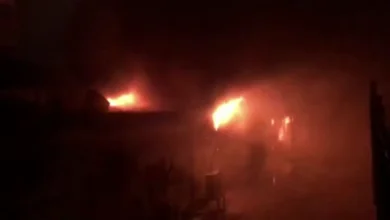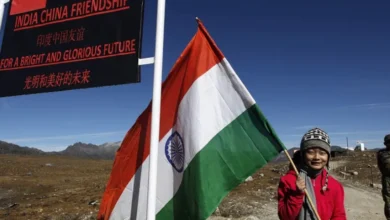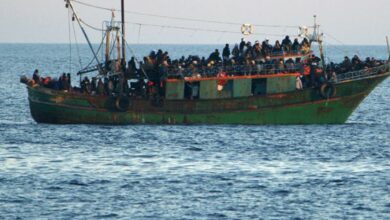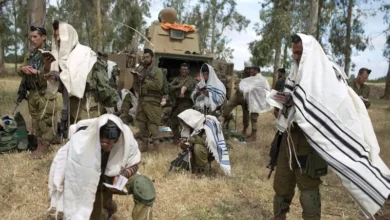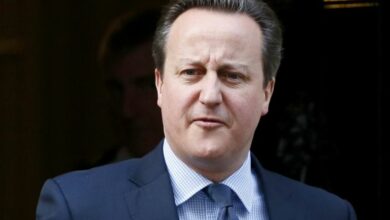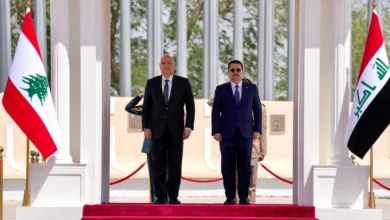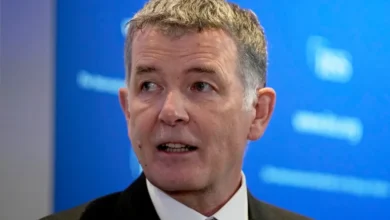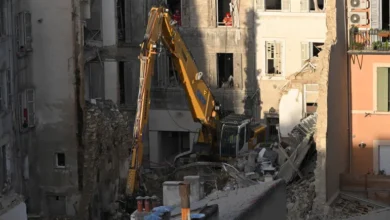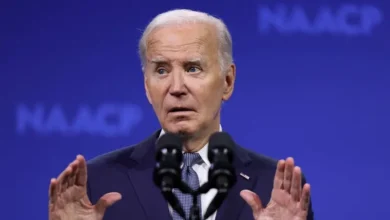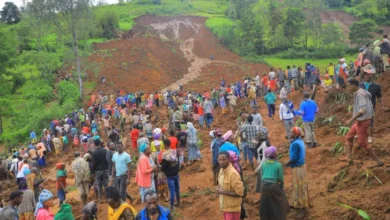Kashmir election: Are separatist candidates change agents or Trojan horses?
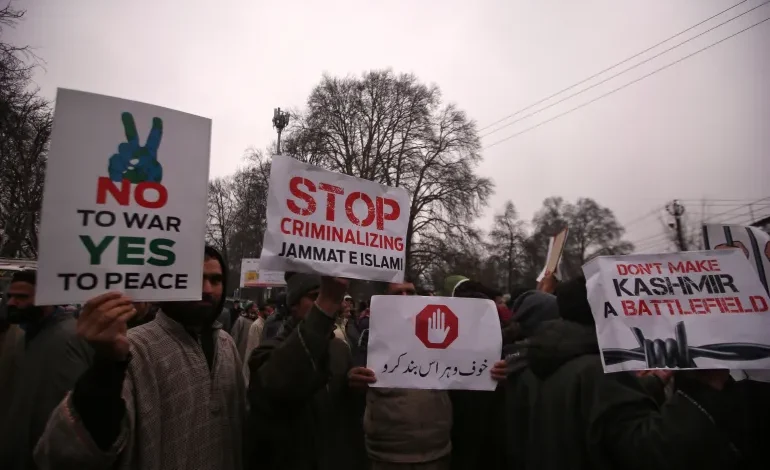
Every day, Kaleemullah Lone leaves his home early in the morning to go door-to-door canvassing for votes in his constituency, Langate, 70km (43 miles) from Srinagar, the largest city in Indian-administered Jammu and Kashmir.
His campaign promises an end to pre-trial detentions and bureaucratic overreach, and to address the flailing healthcare infrastructure and rising unemployment in the Kashmir Valley.
But missing from his platform is any mention of the Kashmir dispute that has torn at the picturesque Himalayan region for decades and dominated the very identity of the political party that Lone belongs to, the Jamaat-e-Islami (JeI). India and Pakistan both claim all of Jammu and Kashmir and each controls parts of it. They have fought multiple wars over the region.
Indian-administered Kashmir is now gearing up to vote in its first regional polls in 10 years, after New Delhi unilaterally scrapped the region’s special autonomy in 2019 and stripped away its statehood. And the entry of an unlikely participant in the election has stirred things up.
For decades, the Jamaat, an Islamist social-religious organisation that has rejected India’s rule, boycotted – and asked voters to boycott – elections, arguing that participating would give New Delhi legitimacy over Kashmir. It spawned armed movements that have fought for Kashmir’s separation from India. The Jamaat is banned in India under the country’s anti-terror law.
Now, at least 10 Jamaat-backed candidates are contesting in the elections, to be held in three phases – September 18, 25, and October 1 – leading to confusion, hope, anger and speculation bordering on conspiracy theories.
“We want to show Kashmiris what is real democracy by our work after the elections,” Lone told Al Jazeera. “By fighting for education and securing employment, we will highlight the damage done to the core of our society because we stayed away from representing them.”
A 37-year-long democratic exile
The Jamaat last contested elections in 1987, when it spearheaded the campaign for the state assembly under the Muslim United Front (MUF). But the elections, which most analysts believe were rigged by New Delhi to deny the MUF a victory, led to an uprising against India’s rule.
The Jamaat eventually became the fountainhead of the armed rebellion, led by a native rebel outfit, Hizbul Mujahideen, which was declared the party’s armed wing in 1990. (The Jamaat distanced itself from the hardliners in November 1998.)
Kashmiri analysts and political observers told Al Jazeera that the Jamaat’s decision to contest elections “completes a tragic circle in the region’s bloodied history” while its cadre remains divided over the call to vote.
“Jamaat is fighting a paradox: on one side, its leaders are being persecuted, and on another side, the party is fighting an election that legitimises Delhi’s rule,” said a senior Kashmiri political analyst, who requested anonymity due to fear of repercussions from the police. “They stand to partly undo 37 years of political struggle for a resolution of the Kashmir dispute.”
In August 2019, New Delhi bifurcated the state of Jammu and Kashmir into two federally governed territories, ended the region’s semi-autonomous status and imposed a crackdown under which dozens of opposition leaders – including mainstream politicians who swear by the Indian Constitution — were arrested. Since March 2019, when the Jamaat was most recently banned [it was banned two times before, in 1975 and 1990], more than 300 party leaders and activists have been arrested, their houses raided and properties seized.
To break the deadlock, the Jamaat appointed a five-member panel that has held multiple rounds of talks with New Delhi, at least three party leaders told Al Jazeera. Since the party remains banned, it is now backing its former members to contest independently in the upcoming elections.
The paradox
Lone was born a year after his father, Ghulam Qadir Lone, a member of Jamaat’s panel of interlocutors with New Delhi, also contested the 1987 state election unsuccessfully in northern Kashmir’s Langate constituency, representing the Jamaat. Raised in the shadow of guns and police raids, the younger Lone recalls feeling “pushed to the wall and getting tangled into separatism”.
One of the Jamaat candidates from the 1987 elections, Syed Salahuddin, eventually went on to become the chief of Hizbul Mujahideen and of the United Jihad Council, based out of Pakistan-administered Kashmir. Another, Syed Ali Shah Geelani, went on to lead a faction of the All Partie Hurriyat Conference group, which campaigned for either the region’s merger with Muslim-majority Pakistan or the creation of an independent nation. Geelani was widely seen as a face of radical resistance.
The JeI fought electoral contests for two decades until 1987. Since then, it backed election boycotts. “Since the process was rigged against us, it was no time to encourage voting,” Lone said.
But the shrinking of Kashmir’s political space since the 2019 crackdown “has pushed us back on the path of fierce democracy”, Lone said.
After several rounds of talks between the Jamaat interlocutors and the Hindu majoritarian government of Prime Minister Narendra Modi, New Delhi told the Jamaat “to cast [their] vote in the Lok Sabha as a show of confidence”, a party insider told Al Jazeera.
The Lok Sabha or national elections were held between April and June 2024. They were widely seen as mostly free and fair, especially in Kashmir, where voter turnout had risen to levels unseen since the late 1980s, and a jailed, anti-establishment independent, Abdul Rashid Sheikh, stunned pundits by beating former Chief Minister Omar Abdullah from behind bars.
Now, competing in the region’s legislative elections is the next step for the group towards “establishing that trust” in Indian democracy, the Jamaat insider said.
The Jamaat-backed candidates are fighting the elections on a shared manifesto with the same promises that Lone is offering to prospective voters.
Noor Ahmad Baba, a retired professor who headed the social sciences department at the University of Kashmir, said that the Jamaat’s decision to fight polls “looks like an attempt to safeguard the party that is in a process of rehabilitation in the social and political scene of Kashmir”.
According to a political commentator who has followed Jamaat’s politics over the decades and requested anonymity to speak, the party’s decision marks a “u-turn” and is being seen as “opportunistic” by parts of the cadre.
But Lone disagrees. “India pushed their own people, us, to the wall. We may have failed as people, but India failed as a state,” he said.
Now, Kashmir needs a new beginning, according to him. “We need politics that talks about reconciliation. We are fighting for the mothers of martyrs, who were either killed by militants or the Indian forces,” he said. “When will we reach out to that mother and tell her we are here?”
The Rashid factor
Talat Majeed, who is contesting with the Jamaat’s support in south Kashmir’s Pulwama, a hotbed of rebellion against Indian government, hopes to repeat the success of Sheikh Abdul Rashid – also known as Engineer Rashid – in the Lok Sabha election.

